★★
“Editing. It’s a choice.”
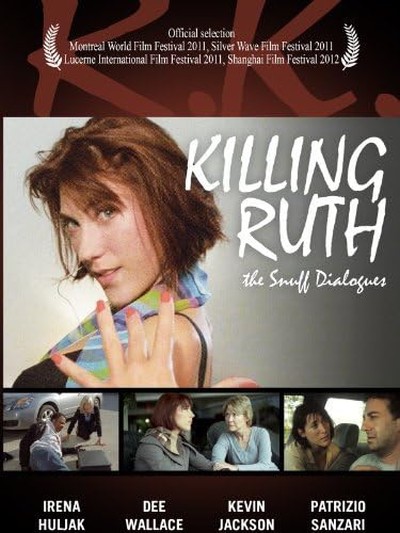 As soon as I saw the running time of this was one hundred and thirty-one minutes, it immediately went onto the back-burner. I have a busy life, and I’ve going to devote close to two and a quarter hours to a low-budget movie, it is going to be when I have a lot of time to spare. My qualms were obvious, and proved very well-founded. This absolutely had no need to be so long. Indeed, it feels like a first draft, which became a shooting script, and everything filmed then ended up in the end product. Entire scenes are superfluous, and those which aren’t could use between “some” and “an oce-lot” of tightening up.
As soon as I saw the running time of this was one hundred and thirty-one minutes, it immediately went onto the back-burner. I have a busy life, and I’ve going to devote close to two and a quarter hours to a low-budget movie, it is going to be when I have a lot of time to spare. My qualms were obvious, and proved very well-founded. This absolutely had no need to be so long. Indeed, it feels like a first draft, which became a shooting script, and everything filmed then ended up in the end product. Entire scenes are superfluous, and those which aren’t could use between “some” and “an oce-lot” of tightening up.
It’s the story of Ruth Keeley (Huljak), who comes home one day to find her father shot dead in his car. She eventually discovers that he had been a hit-man, working for Rod Porter (Jackson), and ends up following into the family business, as it were. On one job in a hospital, she ends up befriending Mrs. Connors (Wallace), the patient in the next bed to her target, and starts sharing her life with the old woman, who offers zero moral judgement. That includes her relationship with long-suffering boyfriend Cameron (Sanzari), and the quest to find out who was behind the death of her father, and why. Which turns out to be exactly who I expected, from about two hours previously.
The idea at its core is not a bad one. There’s something to be said for the idea of an assassin being plain and unremarkable, allowing them to slide past without attracting attention. Ruth is certainly that, being a waitress until her change in career direction, and Huljak is a good choice. She’s incredibly normal, and about as far from the Luc Besson-style of supermodel hit-woman as you can imagine. I’d like to see a film where we have a hitwoman dealing with everyday issues in between violent killing sprees, such as figuring our taxes, or dealing with annoying neighbours. This, however, is more interested in low-key conversations – and by “low-key”, I mean too many scenes which, to borrow a Python quote, wouldn’t “voom” if you put four million volts through them.
Even Wallace, who brings value to everything she’s in, isn’t able to energize things adequately. Not helping: the film brings in ideas, then discards them again, almost at random. For example, Ruth’s late father shows up and talks to her for a bit, then just… doesn’t. Or she gets a mysterious letter from her father’s killer; an angle which the movie forgets about entirely for a good hour, before bringing it back in, semi-randomly, at the end, to try and achieve closure. Long before that point, this had been reduced to the level of background radiation. It was on, and I was in the same room as it. Much more than that, I can’t commit to. But it definitely fails as action, probably as a thriller, and largely as drama too.
Dir: Nicholas Kinsey
Star: Irena Huljak, Dee Wallace, Kevin Jackson, Patrizio Sanzari





 After enjoying
After enjoying 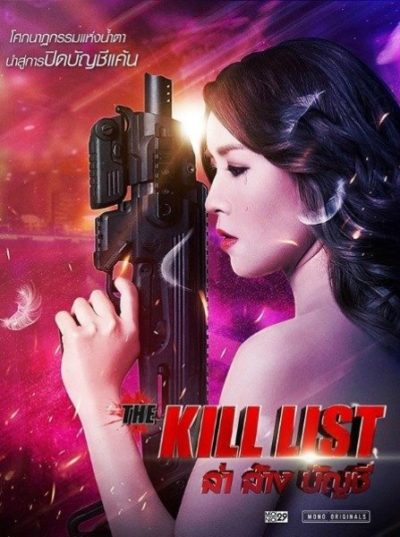 For a TV movie, this is very impressive. When you hear that phrase, I usually think of something which appears on Lifetime or, worse still, Hallmark. But it seems that Thai television is made of sterner stuff. This plays much tougher, more like something you might see on AMC or FX. The story may not be particularly original, but it’s done with enough style and energy to make for more than passable entertainment The heroine is Angie (Rittapinun), an orphan who was brought up by her uncle and trained as an assassin. Her latest mission involves the retrieval of a data chip which contains a list of all the members in the organization of which she’s part. In the wrong hands, it could be disastrous.
For a TV movie, this is very impressive. When you hear that phrase, I usually think of something which appears on Lifetime or, worse still, Hallmark. But it seems that Thai television is made of sterner stuff. This plays much tougher, more like something you might see on AMC or FX. The story may not be particularly original, but it’s done with enough style and energy to make for more than passable entertainment The heroine is Angie (Rittapinun), an orphan who was brought up by her uncle and trained as an assassin. Her latest mission involves the retrieval of a data chip which contains a list of all the members in the organization of which she’s part. In the wrong hands, it could be disastrous. By that, I am referring to the unnamed heroine of this film, because she doesn’t have to leave the house. She works as a hitwoman for Yakuza boss Yasuhiro Kokubu (Katô), and he delivers the targets to the front-door of her rural home, on the pretext of her being their entertainment. She then gives them the Black Widow treatment, having sex with them, before a couple of post-coital shots. She barely has to get out of bed, literally. In some way this makes sense, since she’s blind – I guess it’s nice to see the disabled being given equal opportunities in the assassin field. But she’s not exactly happy with her lot; her cleaner and handler Masahiko Yoshizawa (Murai) is concerned about her spiralling into alcoholism.
By that, I am referring to the unnamed heroine of this film, because she doesn’t have to leave the house. She works as a hitwoman for Yakuza boss Yasuhiro Kokubu (Katô), and he delivers the targets to the front-door of her rural home, on the pretext of her being their entertainment. She then gives them the Black Widow treatment, having sex with them, before a couple of post-coital shots. She barely has to get out of bed, literally. In some way this makes sense, since she’s blind – I guess it’s nice to see the disabled being given equal opportunities in the assassin field. But she’s not exactly happy with her lot; her cleaner and handler Masahiko Yoshizawa (Murai) is concerned about her spiralling into alcoholism.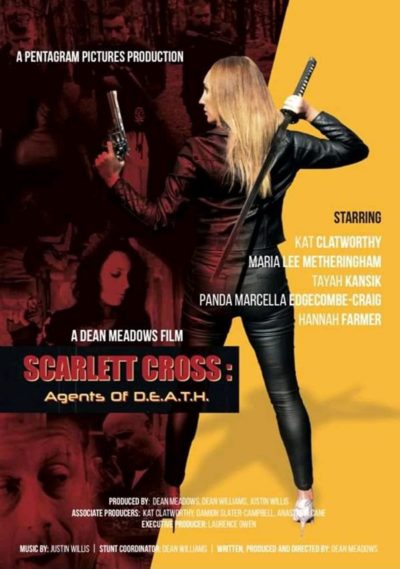 To be honest, I enjoyed this a good bit more than the rating above would indicate – probably another star or so. But I have a particular tolerance for cinema with rough edges, which I know not everyone will share. This is such an entity. I can’t really recommend it, since most people won’t be able to get past the micro-budget anesthetics, which the film rarely bothers even to try and hide. But I could appreciate the obvious passion that went into this. Put it this way, if I had twenty quid with which to make a movie, it could end up looking something like this. Probably not with such a kick-ass poster though.
To be honest, I enjoyed this a good bit more than the rating above would indicate – probably another star or so. But I have a particular tolerance for cinema with rough edges, which I know not everyone will share. This is such an entity. I can’t really recommend it, since most people won’t be able to get past the micro-budget anesthetics, which the film rarely bothers even to try and hide. But I could appreciate the obvious passion that went into this. Put it this way, if I had twenty quid with which to make a movie, it could end up looking something like this. Probably not with such a kick-ass poster though.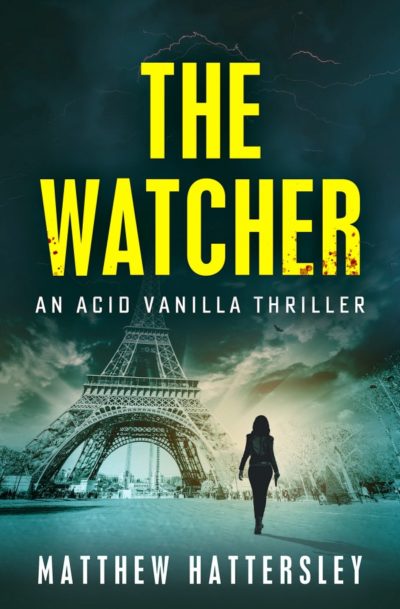 Somebody
Somebody  Made on a shoestring in Ireland, the nicest thing you can say is probably, this doesn’t look as cheap as it was. If only you could say the same for the script, which seems to be trying to be Guy Ritchie, only to end up nearer to Guy Fieri. It’s not a terrible idea, if rather stretching belief. Katelin Ballantine (Doherty) is a film producer, trying to raise funds for her latest movie. To that end, she is hanging out, unwillingly, with sleazeball businessman, Felim Shaw. What she doesn’t know, is he is deep in debt to local mob-boss Edmund Murren (Fleming). He kidnaps them both, forces Katelin to kill her potential investor, then threatens her family to make her continue in her new career as his assassin, alongside former friend and now Murren associate, Henry Furey (Kealy).
Made on a shoestring in Ireland, the nicest thing you can say is probably, this doesn’t look as cheap as it was. If only you could say the same for the script, which seems to be trying to be Guy Ritchie, only to end up nearer to Guy Fieri. It’s not a terrible idea, if rather stretching belief. Katelin Ballantine (Doherty) is a film producer, trying to raise funds for her latest movie. To that end, she is hanging out, unwillingly, with sleazeball businessman, Felim Shaw. What she doesn’t know, is he is deep in debt to local mob-boss Edmund Murren (Fleming). He kidnaps them both, forces Katelin to kill her potential investor, then threatens her family to make her continue in her new career as his assassin, alongside former friend and now Murren associate, Henry Furey (Kealy).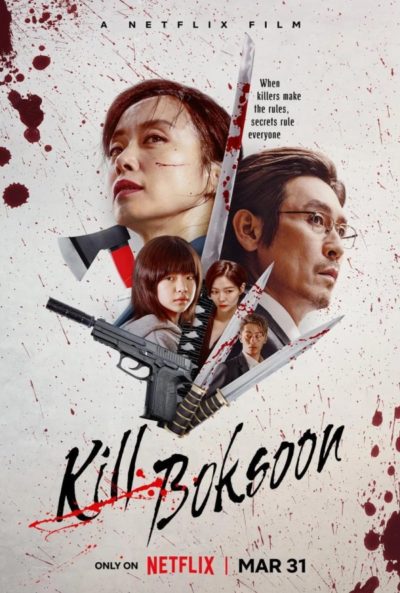 There’s a lot to admire about this South Korean film, though a couple of fumbles stop it from achieving the heights it threatens to do. You’d be forgiven for thinking it’s a knock-off of Kill Bill going by the title. But it’s as much a pun on the name of the heroine, Gil Bok-soon (Jeon). She has been an assassin since she was 17, and has worked her way up to be the top employee of the MK. ENT corporation, run by Cha Min-kyu (Sol). They are one of a number of competing companies offering killers for hire, but to ensure standards, certain common rules have been agreed, e.g. no kids, and are adhered to by all. Well… Kinda…
There’s a lot to admire about this South Korean film, though a couple of fumbles stop it from achieving the heights it threatens to do. You’d be forgiven for thinking it’s a knock-off of Kill Bill going by the title. But it’s as much a pun on the name of the heroine, Gil Bok-soon (Jeon). She has been an assassin since she was 17, and has worked her way up to be the top employee of the MK. ENT corporation, run by Cha Min-kyu (Sol). They are one of a number of competing companies offering killers for hire, but to ensure standards, certain common rules have been agreed, e.g. no kids, and are adhered to by all. Well… Kinda… Tubi TV has become a goldmine of obscure, weird and,
Tubi TV has become a goldmine of obscure, weird and,  Daphne Wool (Varela) has finally had enough of her abusive husband, so has killed him, chopping up the corpse and keeping it in a storage locker. Which actually is a good thing, because it turns out he was wanted by the Mob, and there was a price on his head. For their “help” in carrying out the hit, Daphne and pal Tony Steele (Cappello) are rewarded, but things go further. Daphne becomes a full-time assassin for the gangsters, learning to kill with everything from a paper-clip up, while Tony acts as her facilitator. However, they quickly become a liability to the organization, and are given a “poison pill” contract, being sent to kill weapons inventor Vincent McCabe.
Daphne Wool (Varela) has finally had enough of her abusive husband, so has killed him, chopping up the corpse and keeping it in a storage locker. Which actually is a good thing, because it turns out he was wanted by the Mob, and there was a price on his head. For their “help” in carrying out the hit, Daphne and pal Tony Steele (Cappello) are rewarded, but things go further. Daphne becomes a full-time assassin for the gangsters, learning to kill with everything from a paper-clip up, while Tony acts as her facilitator. However, they quickly become a liability to the organization, and are given a “poison pill” contract, being sent to kill weapons inventor Vincent McCabe.